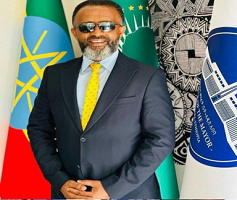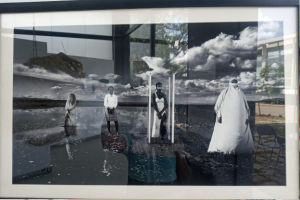
African women’s issues have been the leading issues of the continent for many years. Some people argue that the topic became a point of discussion after colonization. However, sources showed that the subject was among the most controversial ones. Instead of combating the problems, colonialism was the leading factor that hindered women from equal participation. It was a double burden that worsens females’ status. The patriarchal structure which is informed by the socio cultural trend of the indigenous society and the super subversion of the colonial masters, African women were experiencing double exploitations. This means that they had cumulated pain and it was too difficult even to be recognized as a human being. After colonization, lots of measures have been taken to uplift and treat their psychological and socio cultural setup. In accelerating these things, various institutions and NGOs have been setting up their organizations aiming to overcome the problem and fill the gap in gender inequality.
Each country’s government has also been drafting policies and strategies in a way that can bring change regarding women’s equal participation in every aspect of competition. In addition to that, plans and programs at the continental and global level were proposed many times. The UN Women has been formulating various laws and policies that targeted the elimination of all forms of violence, promoted equal inclusion, and balanced exposure in the continent. International organizations and even leaders have been deciding on the prevalence of gender equilibrium in the world. But the practical result is almost the reverse. Now the question is how then these issues be approached to achieve the goals planned by local and international institutions. This idea is the hot and attention grabbing point to be discussed these days at every stage of the conferences held in the world.
A conference that was held in South Africa and incorporated top ministers from all African countries which are above 1000 members did raise the mentioned agenda in the meeting. As the foreign relation expert of SABC, Sofia, paraphrases the gist of the conference, these top officials were discussing points that are related to how African women be promoted and trained to take political leadership positions. The host of the program was asking Sofia “Who is holding back women from leadership?” Sofia responded based on the conference that she was attending. She said, “The woman herself. It is the woman herself who refrain from political competition. It is herself that leaves the space to be headed by males. Even women didn’t elect other women.
She elects the man since she didn’t have self-confidence with other women too.” Thus women who could work even better than males, are not yet elected by their own sisters. This has a greater effect in many ways. Logically thinking, there could not be any one that can understand woman better than the woman. Thus, seeing a woman ignoring another woman did complicate the empowering process of women in various areas of competition. The competition is so tough since she is going to face a male who is already socially approved for any position.
As political experts argued, issues of women are going to be formulated and implementation directions are going to be decided with the absence of women since women are not around that table. For better outcomes, women themselves need to be at the table. But the patriarchal effect and negative attitude of the people particularly women are affecting other women’s’ empowerment. In this regard, the former UN Women Director Phumzile Mlambo-Ngcuka argued that “exclusion of women in decisions that affect their lives is bad sign of corporate government. It should not be allowed. This is why at this point we are at cross roads. We have to bring this to an end.” The former Director’s idea here is the government should be careful on gender equality before bringing issues to be decided since every issue is equally important for females too. Thus, the point is females need be active and committed in taking these positions that greatly matter their own life. They should not allow males to decide over them.
Dr. Ngozi Okonjo iwayola had a point on how to alert women to join political leadership. Here are her words. “If women are to make progress, men must also learn how to open the way. Men play a critical role in whether women make progress or not. And I often advise women, ‘if you are seeking mentors don’t only look to other women, also look to men. At this point, to me, men are controlling a lot of the places where women cannot get in to. And I want them to hear this message, ‘you need to get out of the way a little bit so that women can have a chance.”
From this remarkable woman, the idea that I personally encountered is the search of other women in a given area. In order to join a given platform, females most of the time need to see other women in the track. But that is not the right perception. Dr. Ngozi did believe that in the absence of females, there are males, so why do females need other females? Get in there. You can be the first on the journey. This is very important for the political positions which are mainly dominated by males that is why they keep believing it is their world. But females should change this attitude and break the culture.
Ethiopia’s experience regarding the measures which are undertaken to enable women come into leadership was pronounced by Women and Social Affairs Minister Ergogie Tesfaye (PhD) while she was interviewed by Kanchi Batra (Managing Editor at Extraordinary and Plenipotentiary Diplomatist.)
The first question she was asked to address was the effort that the country was doing to bring gender equality. She said, “The move towards balancing gender in every sector required a greater struggle since the country had been experiencing patriarchy and socio-cultural trended degradation of females.” Ignoring the participation of females, do mean that the sectors are missing more than half a percent of the population. As she confirmed, this had a negative impact on the transformation of the country. Here is her say, “not including the half percent of the society had a greater impact on the development of the country.”
She raises the measures that the Minister is taking various actions to ensure gender balance in every institutional sector. In order to follow up policies formulations and the regulations of these policies, the office had created a department that primarily takes the mentioned concerns. This department is the main stream responsible for following up on the implementation of policies on gender, especially women’s issues. The specific goal of this department is to detect how policies are addressed and how they are implemented. She said, “This is the indication that the Ministry is much committed to bringing women’s participation to the higher level.” I can comment on this measure that if policies are going to be regulated and further policies are going to be entertained, women could have a better environment to avail themselves into leadership positions.
The other measure the Ministry did to combat gender inequality in the country is launching daycare centers for babies that could mostly free women employees from routine baby care and frustrations for their babies. Since their babies are by the side of their working area, women can be free of any worries and get concentrate on their jobs. This is she said, “an opportunity which enables women to stay safe and proceed on their work assignments attentively.” This again I believe is an encouraging effort for the women to step up forward to dream more positions.
Ergogie also raised an important point regarding the deed of the Ministry in enabling women to get encouraged to join a certain leadership. “We are basically working on advocacy. We have organized more than 3000 Youth Centers. And we are working on upgrading this center in to an entrepreneur level so that the youth population could be self-brilliant.”
As I have been referring to the experiences of basically Joyce Banda and Ellen Johnson, in the previous articles these presidents were able to prepare a good number of female leaders through massive mobilization. They have organized associations and institutions and were able to mobilize millions of females. Thus the trend of the ministry of women and youth in Ethiopia is also adopting this approach. This move could produce more women leaders since having an alerted group regarding females by itself is a greater measure for our society.
Though the number is too small when it is compared with other African countries experiences, it is still appreciable. Such a massive approach as sources revealed is very important to create attitudinal change in the minds of the dominant public. This is said because the rooted patriarchy is still the greatest problem for women to get into the track of leadership. Thus, this patriarchy is going to be challenged through attitudinal change. Attitudinal change requires the raise of the group that stands against the mass. Therefore, massive mobilization can bring a greater change in the patriarchal perception of society.
The conclusion is considering African women to be included in every sector is not a choice rather it is a must for sustainable development and transformation. Women have their own unique nature and efficacy even better than their male counterpart. Thus, their inclusion did a lot to have a fruitful result in every sector. Africa is the lowest continent in gender equality. Although some improvements are registered in the area, there is still a very long way to go. The governments should work more in meeting the 2023 plan of the UN. Women themselves need to be very active, committed, and confident enough to step up the ladder to leadership. Change starts from the self. There are a lot of skilled and informed women in the country. This should be taken as an opportunity to bring a difference in the sector. The ministry can create a section that aims at encouraging and training these equipped women to help them take positions based on their merit. That is a logical move for sounding development and prosperity in the long run.
BY MEKDES TAYE (PhD)
THE ETHIOPIAN HERALD THURSDAY 15 AUGUST 2024





